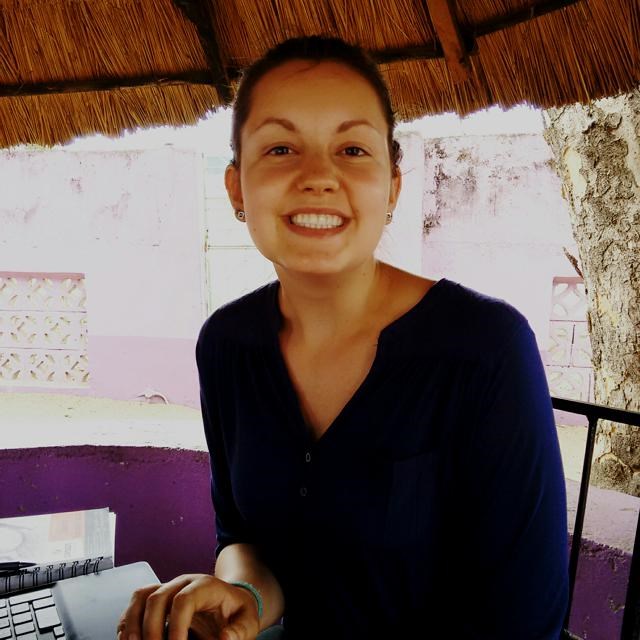By Greg Nikkel
An engineering student and grad of the Weyburn Comp School, Anita Lazurko, wanted to make a difference with her knowledge and energy, and her passion led her to take part in a four-month community development project in the African country of Malawi this past summer.
As a result of her work on this project, and her involvement with the Engineers Without Borders organization (of which she is the president of the University of Calgary chapter), she was named to the “Top 30 Under 30” magazine put out by the Alberta Council for Global Cooperation.
Anita is now in her last semester of her four-year Bachelor’s degree in engineering, and admits to being a little blown away by the honour of being named to this elite group of 30 young people.
“Honestly, I’m totally humbled by that. Part of me is going, ‘What? No way!’ I know a few of the people who on that list, and it is incredible to be recognized among them,” said Anita in an interview from Calgary.
Asked how she got involved with this development project, Anita replied, “I grew up in Weyburn and have always enjoyed being involved in sports and in the community. I went into engineering at university because I like math and science, and I thought with some initiative I could use those skills to make a difference to other people.”
She’s been involved with Engineers Without Borders since the start of her degree, and said it’s been “an awesome experience working with cool people,” where she can use her skills and knowledge to make an impact in a positive way.
This past summer, from May to August, she travelled to Malawi to work with the Water and Sanitation Hygiene Catalysts, which was a venture of Engineers Without Borders.
There she worked with the government’s district water development office, and lived with a host family in a village just outside of the city where she worked, enabling her to get a close-up experience of the culture and life in Malawi.
She described her work as being a consultant in the district water office for the district, noting the country is divided up into 28 districts.
“I was working in a demand-driven program that EWB provides to district governments. The water government in my district of Balaka wanted to pilot a new community-based committee that oversees water and sanitation issues. I was there to support the strategy and action plans, and to build support from all stakeholders,” she explained. “That kind of work was really interesting.”
There were many things Anita learned about in her four-month stay in Malawi, including how truly complex aid and development projects in developing countries can be, not to mention the processes involved in helping these countries.
She noted that when Canadians give money to charities that work overseas, they tend to think in a quantitative way, like how much food it will buy, for example.
“I saw the other side of that. We made sure the structures around will support it in the long-term,” she said.
Living with a host family was interesting for her, said Anita, particularly as the family didn’t speak any English, and she ate what they ate every day.
While it wasn’t always easy for her, she looks back on it now amazed at how strong a relationship she was able to build with them in spite of the language barrier.
“The most amazing thing was when I realized how common our humanity is. The kids were playing games that are so similar to games I played in elementary school,” she said. She was provided with a phrase book for Chichewa, the most common dialect in Malawi, and she was able to learn quite a bit of it by the time she was done her four months.
The staple food there was a dish called nsima, a maise and flour paste with relishes added to it, along with beans or different kinds of meat, particularly dried fish.
She worked full-time at the job during the week, but with four other university students dispersed throughout the country, they tried to meet up every few weeks to spend some fun time together, visiting different places around the country, such as along Lake Malawi, famed for its beaches, and places like Nkhata Bay, where there are some nice lodges to stay in.
They also took in a safari where they saw elephants and birds.
Overall, said Anita, “It was an incredible learning experience where I saw the highest of highs and the lowest of lows. … It’s opened my eyes.”
In the “Top 30 Under 30” article about her, Anita was asked what changes she would like to see in the world, and answered in part, “I want to see more people with a global perspective that allows them to connect with the plight of people on the other side of the world. I want to see a world that takes divergent opinions, beliefs and motives and turns them into something more than the sum of their parts.”
In the preface to the “Top 30 Under 30” magazine, executive director Heather McPherson said, “These 30 young people will be among those leading the charge to meet sustainable development goals.”
The students, including Anita, “are among the most impressive, accomplished, and committed youth anywhere in the world. Their commitment to making the world a better, more just place for everyone is truly inspiring.”




